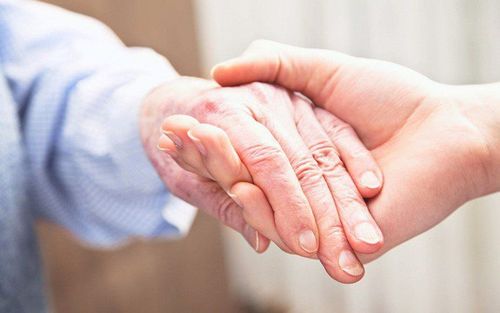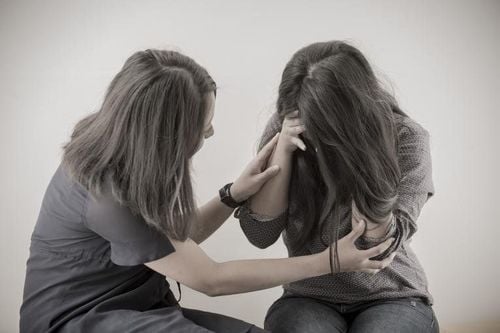This is an automatically translated article.
How do doctors deal with the death of a patient? This is a question of great concern, and practically every doctor deals with the grief of a patient's death in a different way. Below are useful information to help you better understand the work of doctors who often deal with the death of patients.
1. Facing a Patient's Death
When your job revolves around taking care of people and making them better, it is difficult for them to not recover. The sad truth is that no matter how hard we try, we simply cannot save every patient; sometimes their injury or illness is too serious. That's important to remember as you take on your first official role in a hospital.
Doctors are trained to save patients and improve their quality of life. To deliver a great care experience, your patients will need to trust you and feel comfortable in your presence, and that requires you to form a relationship with them. For that reason, a dying patient can trigger a number of emotions, including sadness, grief, guilt, and anger. You may also lose confidence or feel like a failure. You don't want to appear weak or incapable of doing the work you've worked so hard for. Many of the most experienced healthcare professionals feel grief or loss for patients who have passed away. However, you will get better at handling them over time.
You can experience a sense of loss when a patient dies and the event can also evoke feelings of guilt or anger. You may feel that you or others could have done more to help the patient during their final illness. While loved ones of the deceased are allowed to grieve, as a healthcare professional you may feel you are not allowed to express your feelings.
And sometimes the death of a patient can rekindle a sense of personal loss you've experienced before.
To deliver a great care experience, your patients need to trust you and feel comfortable in your presence, and that requires you to form a relationship with them. For that reason, a dying patient can trigger a number of emotions, including sadness, guilt, and anger. You may also lose confidence or feel like a failure.
As the first, it can be quite intimidating to admit that you feel a lot of emotions around the death of a patient. Here's the secret, many of the most experienced healthcare professionals feel grief or loss for patients who have passed away. Most of them will tell you that patient deaths have never been easier and that you will get better at handling them over time. If you are experiencing any emotions related to a patient's death, do not be embarrassed or afraid to express them.
2. How do doctors deal with the death of a patient?
When a child dies, doctors inevitably question the quality of care provided. Uncertainty in the doctor's mind about the treatment being performed can increase emotional responses. Mistakes or substandard care can increase negative emotions.
Although death is a tragedy, there is sometimes professional satisfaction when the outcome of palliative care is a peaceful, painless death.
If doctors' work is familiar with the emotions they often experience after a patient's death, individuals can change their behavior to provide professional support for the bereaved. However, doctors should not lose sight of empathy.
Doctors use several strategies to deal with the emotional reaction to the death of a deceased patient. Some doctors have experience dealing with difficult situations either by solving the problem outside or by becoming a little reticent. Another strategy, often the subject of medical satire, is the sick sense of humor present in many departments dealing with the most difficult tragedies. To newcomers, this sense of humor may seem uncomfortable at first but is quickly learned; No one finds death funny but it is often used as a defense mechanism.
Awareness of medical and legal procedures required after death can serve as a starting point for discussion. Knowledge of the grieving process allows for some understanding of family behavior after death. Training in this knowledge is important to allow the physician to feel more comfortable talking to the family, but does not provide specific emotional support to the physician.
It seems that in essence, professionals should look to their consultants for assistance. Fragmentation of medical institutions and changing patterns make this more difficult. Support is most effective if it is provided in the workplace. This support from peers and seniors should be voluntary and individual psychological counseling should not be sought. The role of senior or hospital leadership is important in facilitating and giving credibility to this process.

Bác sĩ đối mặt với cái chết của bệnh nhân thường đặt ra nhiều câu hỏi
It is not easy to accept that a patient has passed away, but admitting death is the appropriate way. You may also find it helpful to:
Talk to a friend or colleague - tell them how you feel about the patient's death instead of keeping your feelings private. Talking about your feelings will help you manage the rest of your shift with less stress. Comfort the patient's loved ones - this can also comfort you. However, be sensitive to your family's feelings and don't put your feelings above theirs. Remember that while this is a difficult experience for you, it is potentially devastating for them. Accept the nature of your work - although it's hard to do, accepting a patient's death as something that happens in your line of work will help you deal with it in the future. Know when you're not - and see your GP if you feel that a patient death is seriously affecting your life, both professionally or personally. Ask your colleagues for advice - many of your colleagues have been through this, so you may find it helpful to ask for advice on how to deal with a patient's death. Remember that some people don't like to revisit difficult memories, so avoid pushing them if they don't want to share them with you. Understand your feelings - it's natural to grieve for the deceased, even if you only know them in a professional context. It's important that you continue with the great work you're doing, but don't deny yourself the opportunity to grieve, even for a small amount of time. In addition, there are some things to do to share the coping mechanisms they have found to be most helpful in dealing with a patient's death:
Impressive expressions It is good to feel the loss yourself for health. “Let the emotion happen, it makes you human and empathetic. It takes time to get over death, and it's perfectly normal to remember those who have died."
Expressing emotions in front of the patient's family is okay, but experiencing a breakdown can make the patient's loved one feel that they need to comfort you.
Take time to reflect Each doctor handles a patient's death in his or her own way. The doctor's job is to want to take a moment to reflect on the time spent caring for the patient, remembering the positive interactions between himself and the patient: “Each of us has a mechanism. deal within their own. “Find what will work for you to deal with that loss and continue to work for your patient and family.”

Sau khi bệnh nhân qua đời bác sĩ có thể dành thời gian để suy ngẫm
Using “We” To help combat negative thoughts after a patient passes away, when doctors talk to families, doctors frame things using “we,” phrases words like “We can't cure your child” or “We tried our best”. The doctor also reminds herself that there is a limit to what she can do to help her patients.
Dispel feelings of failure While there's nothing you can change about a patient with cancer or another life-ending illness, it's important to feel defeated after a patient passes away. nature. However, it is important to combat this feeling. Doctors combat feelings of failure by remembering the successful results they've had with other patients.
Define your role Society sees doctors as healers and it is easy to fall into the trap of seeing your role and value as being able to save patients. "If you're always looking at your role in healing, you'll always feel like you've never done enough." For patients who cannot be cured, doctors should try to help them get through as best they can by helping them organize their work and making sure they feel as little pain as possible.
Finally, it is important to recognize inappropriate strategies, such as alcohol and substance abuse, early. Employers also need to be vigilant in detecting post-traumatic stress disorder.
Please dial HOTLINE for more information or register for an appointment HERE. Download MyVinmec app to make appointments faster and to manage your bookings easily.
References: webmd.com, thedo.osteopathic.org, bma.org.uk












